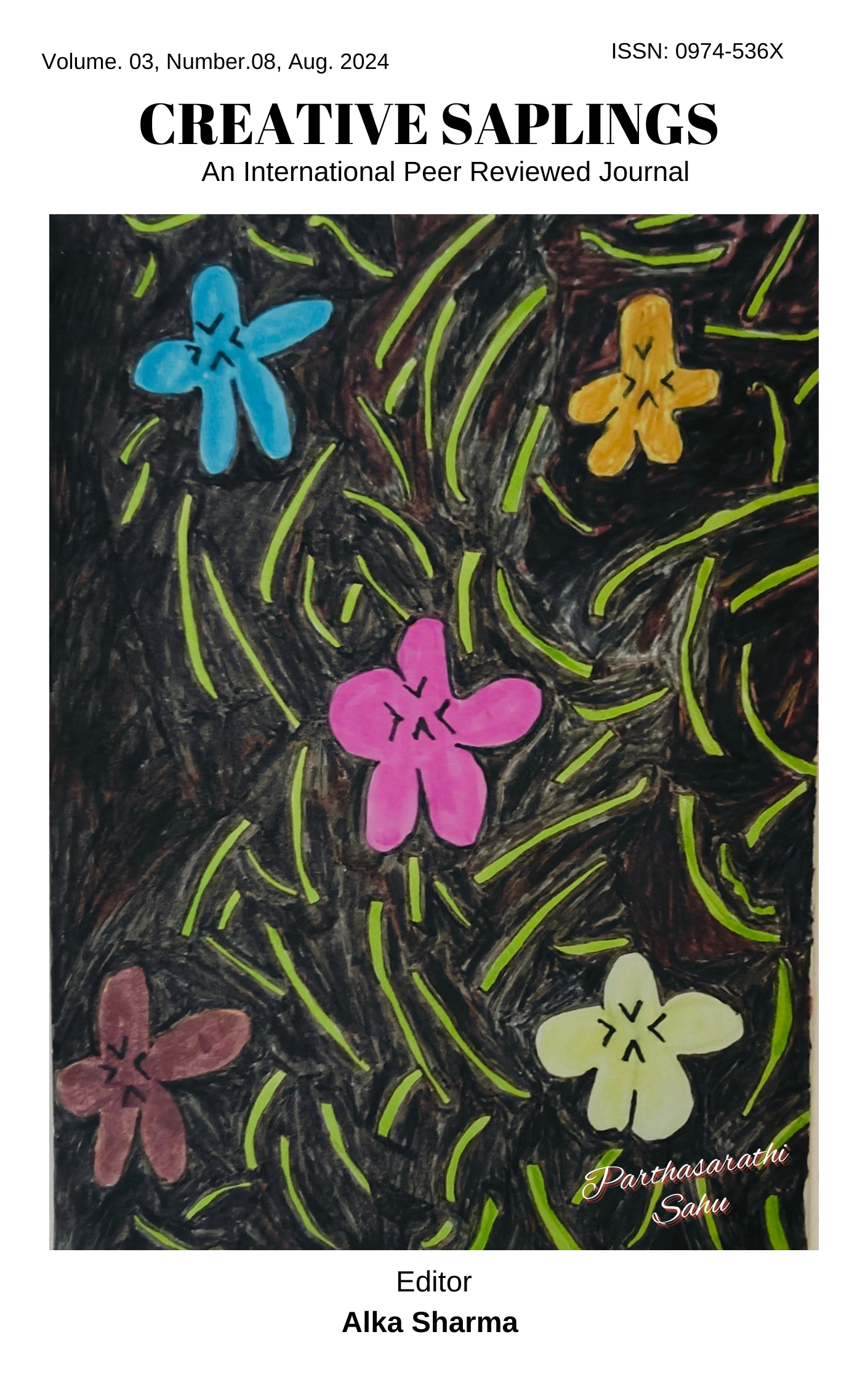Exploring Connotative Meaning of Laxmi's Dialogues in Vijay Tendulkar's Sakharam Binder
DOI:
https://doi.org/10.56062/gtrs.2024.3.8.675Keywords:
Pragmatics, Patriarchal society, Gender bias, Connotative meaning, Denotative meaning, Agony.Abstract
Pragmatics highlights the implied meaning of a dialogue in the light of its context. The same theory of meaning in context has been used in the study of this research paper. The basis of the study is H. P. Grice’s cooperative principle and its maxims. The main focus of the study is to see the implied meaning of an utterance whenever the maxims of cooperative principle are flouted. The play is a representation of gender bias in the contemporary patriarchal society vividly penned by Vijay Tendulkar. The basis of the study is to fathom the meaning beyond the dialogues of the protagonist Laxmi in the play ‘Sakharam Binder’ by Vijay Tendulkar. Though the literal meaning of the dialogues is self-sufficient to portray the characters and its suffering, the implied meaning or the unspoken emotions of the character Laxmi has more to reveal. Hence, the dialogues of Laxmi are read and studied in light of her trauma of getting abandoned by her husband, getting exploited physically and emotionally by a womanizer Sakharam, her helplessness, her agony after getting the allegation of theft from her nephew etc. The findings of the study reveal that Laxmi has lost all hopes initially. She is jolted by the kind of treatment she receives from the male dominated society. It's the fear of getting thrown out of the house of Sakharam, which compels Laxmi to tolerate the atrocities and not to be vocal about it. Superficially, it appears to be normal for her. But the connotative meaning makes the readers realize the loss, disturbance, anger, dejection, hopelessness, suffocation, frustration of Laxmi. Thus, the study of unspoken meaning becomes pivotal compared to the denotative meaning of Laxmi's dialogues. She represents the females that undergo such tragedy because she is She and not He.
Downloads
References
Abrams, M. H. A Glossary of Literary Terms. 7th ed., Prism, 2003.
Austin, J. L. How to Do Things with Words. Harvard UP, 1962.
Brown, G., and G. Yule. Discourse Analysis. Cambridge UP, 1983.
Clark, Herbert H. Using Language. Cambridge UP, 1996.
Crystal, David. A Dictionary of Linguistics and Phonetics. Reprinted 1995, Blackwell, 1980.
Grice, H. P. “Presupposition and Conversational Implicature.” Radical Pragmatics, edited by Peter Cole, Academic Press, 1981, pp. 183-98.
Grice, H. P. Studies in the Ways of Words. Harvard UP, 1991.
Leech, Geoffrey N. Principles of Pragmatics. Longman, 1983.
Levinson, Stephen C. Pragmatics. Cambridge UP, 1983.
Searle, John R. Speech Acts. Cambridge UP, 1969.
Kothari, C. R. Research Methodology: Methods and Techniques. New Age International, 1985.
Thorat, Ashok. A Discourse Analysis of Five Indian Novels. Macmillan India, 2002.
Tendulkar, Vijay. Five Plays. Translated by the author, Oxford UP, 1992.
Downloads
Published
Issue
Section
License
Copyright (c) 2024 Ram Patil

This work is licensed under a Creative Commons Attribution-NonCommercial 4.0 International License.





